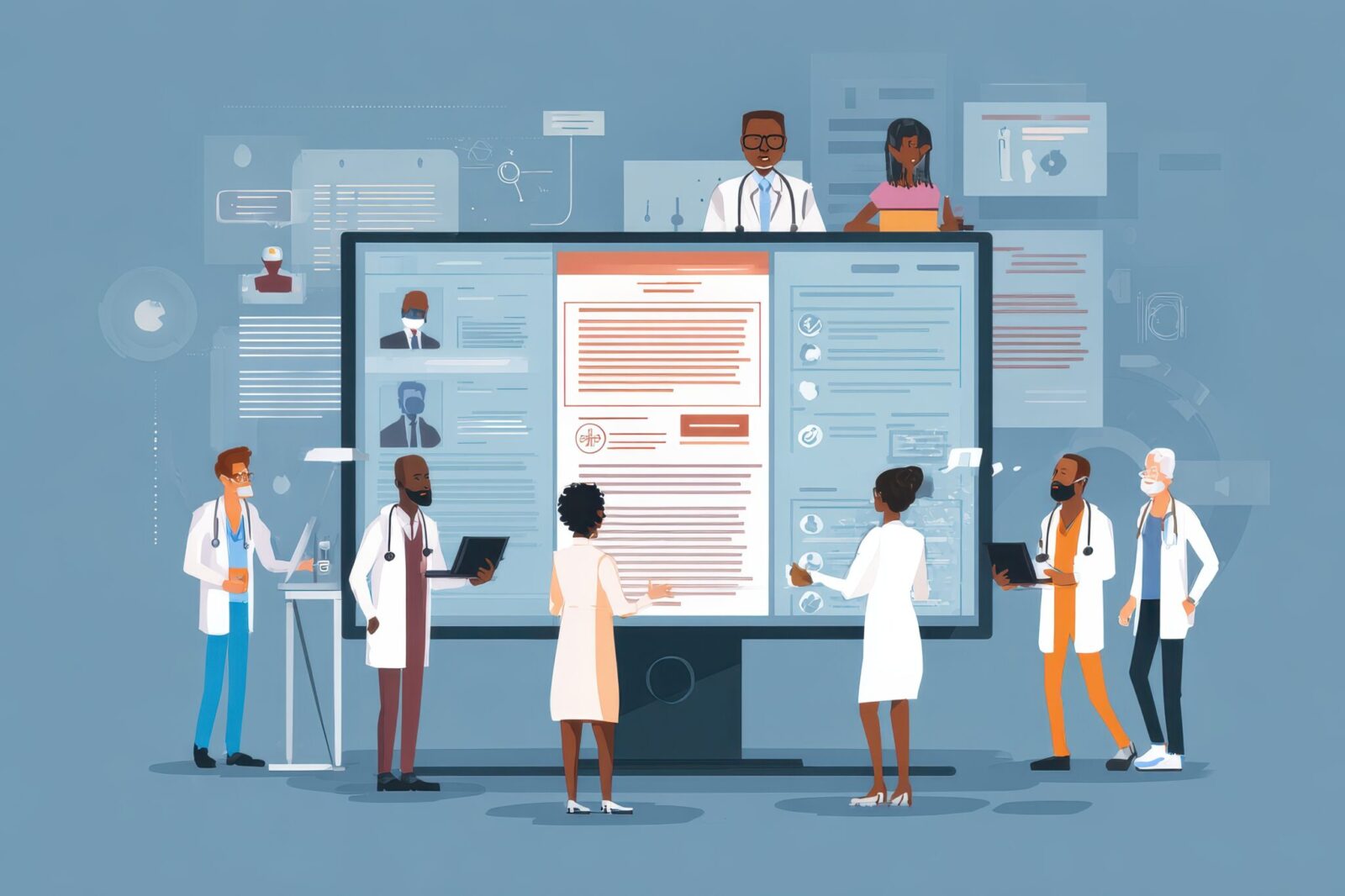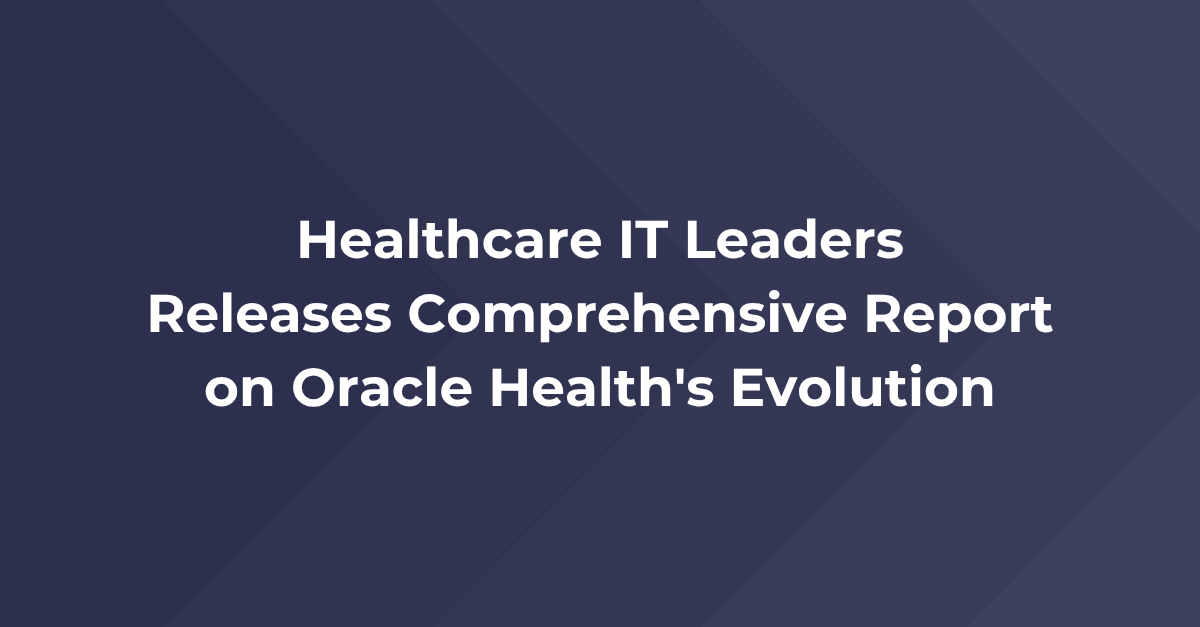Healthcare organizations are drowning in documentation. Physicians spend nearly two hours on administrative tasks for every hour of patient care, while IT teams struggle with critical staffing shortages, high levels of turnover, and increased demand to integrate artificial intelligence (AI) solutions that actually reduce complexity rather than add to it. With healthcare organizations facing mounting […]
Healthcare organizations are drowning in documentation. Physicians spend nearly two hours on administrative tasks for every hour of patient care, while IT teams struggle with critical staffing shortages, high levels of turnover, and increased demand to integrate artificial intelligence (AI) solutions that actually reduce complexity rather than add to it.
With healthcare organizations facing mounting pressures to improve patient outcomes while managing costs, healthcare technology vendors like Oracle Health aim to offer meaningful solutions to the industry’s biggest problems. From ambient listening and predictive analytics to smarter workflows and personalized care, here are five ways Oracle Health is leveraging AI in their solution portfolio—and why a strategic approach remains essential for any AI implementation.
1. The New Oracle Health EHR
At the core of Oracle Health’s strategy is their new electronic health record (EHR). Built on Oracle Cloud Infrastructure (OCI), the new Oracle Health EHR promises a dramatically updated user interface (UI) that leverages AI and voice-enabled features to reduce clicks, streamline clinical workflows, and enhance decision-making at the point of care.
Designed to meet clinicians where they are, the new EHR represents a major step in Oracle Health's vision of creating a unified healthcare experience that is not only intelligent and user-friendly, but also adaptable to the evolving needs of healthcare teams in an increasingly digital, AI-driven environment.
RELATED: 4 Key Enhancements to Plan for in the New Oracle Health EHR
2. Updated Clinical AI Agent
Oracle Health's Clinical AI Agent, formerly known as the Clinical Digital Assistant, is designed to address one of healthcare's most persistent challenges: documentation overload.
Now available in more than 30 specialties, the newly updated Clinical AI Agent integrates directly into existing clinical workflows to provide intelligent, context-aware support. From transcribing conversations in multiple languages to surfacing clinical insights in real-time, Clinical AI Agent is designed to help improve physician productivity, reduce cognitive load, and improve the overall care experience—allowing clinicians to focus more on patient care and less on administrative tasks.
3. OHPAC & Intelligent Automation
As healthcare organizations seek to modernize their financial operations, Oracle Health Patient Accounting (OHPAC)—formerly known as RevElate—has been updated to deliver more intelligent, automated revenue cycle management.
Built as a cloud-based, EHR-agnostic platform, OHPAC utilizes real-time data integration, machine learning (ML), and intelligent automation to streamline tasks like claim submission, denial management, and payment reconciliation—all while helping healthcare organizations improve cash flow, reduce denials, and proactively manage financial performance.
4. Oracle Fusion Cloud ERP & AI Insights
Oracle continues to strengthen its ERP capabilities with industry-specific enhancements tailored for healthcare. Oracle Fusion Cloud ERP now includes advanced AI and ML-driven financial and operational tools designed to improve forecasting accuracy, automate financial close processes, and mitigate risk.
For healthcare organizations, this means better control over costs, improved audit readiness, and the ability to adapt quickly to changing regulatory and compliance requirements—all while enabling operations, finance, and procurement teams to collaborate more efficiently across distributed healthcare networks.
5. AI-Powered Healthcare Intelligence & Analytics
Finally, Oracle has also introduced AI-driven enhancements to all three pillars of Oracle Health Data Intelligence (OHDI), including Clinical Intelligence, Analytics Intelligence, and Care Coordination Intelligence.
With features like cost and utilization analytics, unified patient records, and AI-generated case review summaries, these updates aim to help organizations integrate AI-driven insights, improve interoperability, and leverage advanced analytics—all while making it easier to identify patterns, reduce costs, and improve outcomes.
Getting Started with Oracle Health & AI
As healthcare organizations continue to grapple with workforce shortages, rising costs, and increasingly complex technology ecosystems, the promise of AI can be alluring. However, it’s important to remember that your technology initiatives are only as strong as the strategy behind them.
Whether your organization is evaluating Oracle Health solutions or exploring other options, it’s important to take a step back, assess your organization's readiness for AI transformation, and build a strategy that not only supports innovation but also prioritizes sustainability, equity, and long-term impact.
Ready to learn more? Download our new report, The State of Oracle Health in 2025, for a comprehensive look into Oracle Health’s current trajectory, as well as expert guidance to help your organization prepare for digital transformation, optimize performance, and deliver more connected, patient-centered care.














